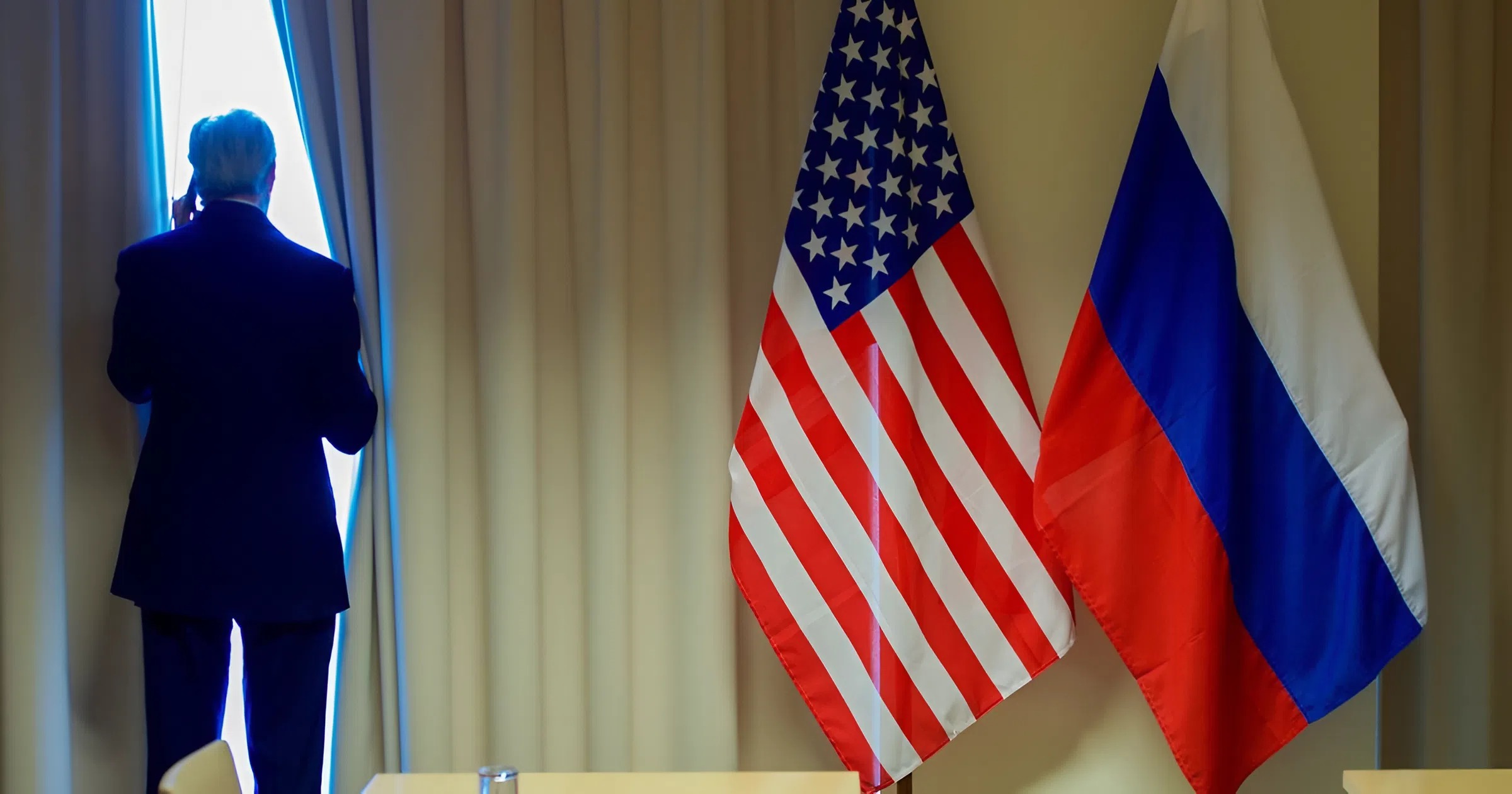Exclusive Interview
After assuming the US presidency in January, Donald Trump revised his predecessor’s policy and made efforts to thaw the Russian-American dialogue. Moscow has chosen a corresponding policy. Nevertheless, relations between the two countries are still complicated by a number of problems, primarily the Ukrainian conflict. In an interview with PIR Center, Dr. Ivan Safranchuk, a member of PIR Center’s Advisory Board since 2015, assesses the current state of the Russian-American dialogue and reflects on its prospects.
The interview was conducted by Mr. Ilya Subbotin, PIR Center intern.
Mr. Ilya Subbotin: In your opinion, could another meeting between Vladimir Putin and Donald Trump take place before the end of the year? Does the so-called “Spirit of Anchorage” still exist?
Dr. Ivan Safranchuk: A new meeting is possible. I think it is more likely in the next six months than in the next two. But nothing – neither bad nor good – is predetermined or guaranteed now. We are not in a dull and predictable “end of history.” History today is a wild mustang, alive and unpredictable. The “Spirit of Anchorage” persists in the sense that there is an understanding of the direction in which it is advisable to move. But Trump’s determination to overcome obstacles on this path has weakened.
Mr. Ilya Subbotin: The Ukrainian conflict remains one of the central items on the Russian-American agenda. How do you assess Trump’s peacemaking efforts in this field and to what extent do they align with Russia’s interests?
Dr. Ivan Safranchuk: Trump is acting in contrast to Biden, and more broadly – to his political opponents, especially Obama. He counterposes their doctrinairism with common sense. Common sense pushes him in the right direction, but it also holds him back from the decisive actions needed to achieve peace. Let me be more specific. The Biden administration set out to inflict a strategic defeat on Russia and waged what Americans themselves call a “proxy war” against Russia. At the same time, technically, the Americans came very close to the brink of direct involvement by participating in target selection and the use of certain types of weapons. Given the general criticism from the opposition, it seemed to Trump that the alternative to Biden’s line was peaceful agreements; that’s when he made a promising statement about a quick settlement of the conflict. But in practice, it turned out that “not doing it like Biden” meant stepping back from the brink of direct involvement (and the associated escalation risks), relieving oneself of the financial burden, not treating the Ukrainian crisis as the main conflict of our time, and freeing up hands for other tasks. Trump has done all this. This is already “different” enough for Trump’s supporters to credit him with fulfilling his anti-Biden election pledges.
Of course, Trump would like the conflict to end thanks to his active participation. Both for reasons of pride – they are obvious – and for practical considerations. Stopping the conflict on terms that everyone would agree to would be a “knockout” to Trump’s opponents. That would be such a different approach (compared to Biden) that even his enemies would have to acknowledge it.
Trump needs dividends. “Freezing” the conflict would certainly provide them. However, a genuine settlement is a contentious issue for Trump. It cannot but be painful for those who bet on Russia’s defeat. They are ready to make noise publicly and engage in behind-the-scenes intrigues. By seriously embarking on a settlement, Trump might not get “applause,” but a wave of criticism and numerous “trippings.” So far, Trump is hesitant to move in this direction. He tests the waters but retreats.
Mr. Ilya Subbotin: In your opinion, what role does the European factor – and above all, Brussels’ obstructionism regarding the settlement of the Ukrainian conflict – play in establishing Russian-American dialogue?
Dr. Ivan Safranchuk: Europeans (with rare exceptions) create an atmosphere that prevents Trump from moving towards a genuine settlement. Why? I would single out a foundation upon which many other ideological and practical considerations are based, forming a strong cocoon of the European position. For many Europeans, Zbigniew Brzezinski’s assertion has become a mantra: without Ukraine, Russia is not an empire. This phrase has a trigger effect. It’s unclear: why specifically without Ukraine? Why not an empire? It’s unclear, but there is a feeling of horror and awe, a sense of comprehending a geopolitical secret.
Europeans are confident that Russia cannot take all of Ukraine by military means. Moreover, Russia says it does not set itself such a goal. This means there is a vast field for maneuver at a decent distance from what the Europeans themselves consider a real loss for them. Some Europeans are somewhat puzzled that they failed to inflict a strategic defeat on Russia in one swift move. But they believe that Russia can be pinned down, even if not as quickly as they would like. The existence of the Ukrainian crisis legitimizes such efforts within Europe itself. For others, the priority is the militarization of Europe and preparation for a full-scale and direct war with Russia. Ukraine is an important resource for such a war. The current price for solving these tasks – in the form of a shrinking of territory controlled by the Kyiv regime, at the pace it is currently happening – is acceptable to the Europeans.
A genuine settlement would mean continuing the centuries-long struggle over where the border between the West and Russia lies, but by non-military means. After the end of the Cold War, Europe clearly overestimated its strength. With the removal of the warmongering anti-Russian fervor, the West, and above all Europeans, might face many questions. And not only in Ukraine but also in other countries, even in Western Europe. Europe expanded from a position of prosperity, and just twenty years later, it finds it necessary to dismantle socio-economic foundations to protect this expanded European space. In a rivalry by non-military means, the current European elites could potentially lose more than in a military one. Therefore, a settlement is dangerous for them. The best option is a “freeze.” With it, they can somewhat relieve the burden (sustaining the conflict with Russia while the US distances itself is still difficult for Europeans), but preserve political mobilization and anti-Russian agitation, preventing normal discussion and competition for the future of Europe.
For now, it’s enough for Trump that the Europeans promise to sustain the conflict financially on their own and take the main political responsibility for it. Moreover, Trump is using the Ukrainian conflict as a tool in his tariff wars with India and China.
Mr. Ilya Subbotin: Speaking about the relations between the two states in general, are there real areas where Russian and US interests overlap today? In which areas, in your opinion, is it possible to reach agreements in the short and medium term, and how sustainable could they be?
Dr. Ivan Safranchuk: For a very long time, since the middle of the last century, a huge element of Russia-US relations was not about the relations between two countries, but about the world order and the global agenda. During the Cold War, these were the relations between the leaders of two blocs. And after the Cold War, our relations with the US were relations with the US as the world hegemon – again, largely about global affairs.
In the already largely formed multipolar world, the space “without the USA” has become much larger. BRICS is the main practical embodiment of this. There is also the SCO, there is the Russian idea of a new Eurasian security architecture. It seems to me that even with the normalization of relations with the US, Russian efforts to form a global space “without the USA” should continue. Yes, this is not “without the USA” on principle, it is “without American dictate.” But for now, “without the USA” and “without American dictate” are synonymous. And I think they will remain synonymous for a long time.
Relations with the US, however, are primarily about the normalization of diplomatic relations, restoring the normal functioning of diplomatic missions, air travel, cultural exchanges, etc., all that has long been considered the norm in relations between the countries and peoples. There are ideas for large-scale economic projects – that’s good too. Each side will get its own benefits.
Mr. Ilya Subbotin: In September, Vladimir Putin declared Russia’s readiness to adhere to the quantitative limits established by the New START treaty for at least a year after its expiration. Donald Trump called this initiative “good,” but an official response from Washington has not yet followed. How do you assess the prospect of the US accepting the Russian proposal, and what could this be due to?
Dr. Ivan Safranchuk: Trump gave a positive signal regarding Putin’s proposal but did not give a full-fledged response. As far as one can tell, for now, the Americans view the Ukrainian crisis as a “stopper” that blocks everything else.
One can understand why, from the standpoint of Trump’s common sense, it is difficult for him to move towards a comprehensive settlement – the costs might outweigh the dividends. But why should the Ukrainian issue be a “stopper” for everything else (especially if a settlement is delayed), including for strategic stability issues? This clearly contradicts common sense and the basic principle Trump declares – “America First.” It turns out that in all matters, Trump does what he considers necessary for the US, and only in relations with Russia does he do what Europeans and the American “deep state” allow him to do. Whether Trump will be able to follow common sense on the Russian track as well or will be forced to accept this obvious anomaly in his “common sense revolution” remains an open question.
Keywords: Russia-US; Arms Control; Ukraine
RUF
E16/SHAH – 25/11/07




